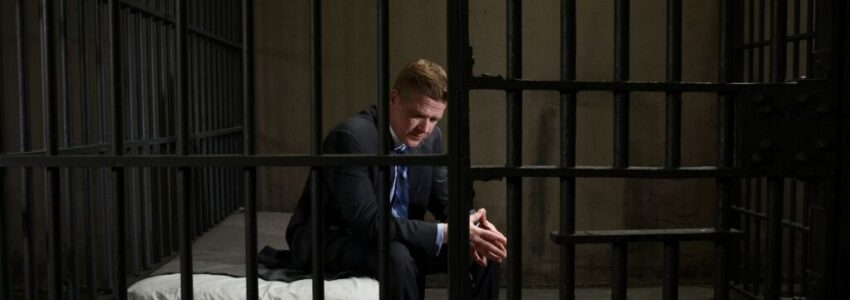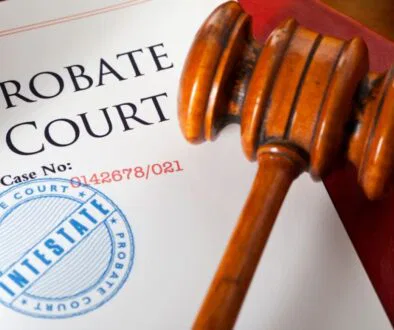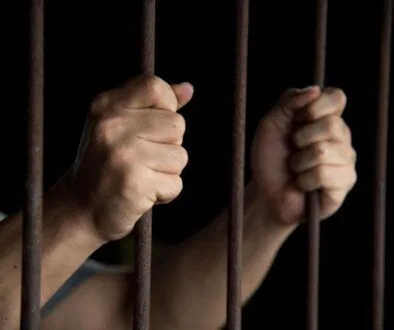Life Inside a White Collar Prison

Published May 23, 2021
If you’ve followed the whole debacles concerning famous names like Michael Cohen and Paul Manafort, the term white-collar prison would be familiar to you. It’s where white-collar criminals like them are usually sent to spend their sentences. Most people also know it as “Club Fed” and for a good reason.
If we are to believe the rumors, a white-collar prison is where big-ticket criminals continue to live in luxury. It’s almost like they never went to prison at all. There are even claims that those white-collar criminals live out some sort of hedonistic fantasies inside it.
But what is a white-collar prison, really?
In reality, there are no white collar prisons. At least, in the eyes of the law. The term was invented by people to refer to posh prison facilities where society’s who’s who are kept. But it certainly is not the country club time out everyone thinks.
US prisons are classified based on the security level of the inmates inside them. There are four types of prisons in the country: juvenile, minimum security, medium security, and high security.
Some prisons, regardless of security classification, have better amenities than others. This makes them a magnet for convicted high-flyers who are looking to do their jail time in less “hostile” environments. But white-collar criminals are not the only ones housed in these prisons. Drug pushers, thieves, and other non-violent criminals walk its halls too.
With these backgrounds, it’s not surprising that there’s a rising curiosity about what goes on inside its walls. What is life really like inside a white-collar prison? To get as accurate a picture as possible, we turn to former white-collar criminals for answers.
Amenities
Since most white-collar criminals are considered non-violent, they’re mostly sent to minimum-security prisons typically run by the federal government. This type of facility usually has a “campus type” setting which makes it more like a prison camp than an actual prison. Inmates sleep in dormitories with bunk-like settings. Depending on the prison population, they can be crowded and extremely noisy.
Some federal prison camps also have facilities for physical activities. There’s an open ground where inmates can run around or do some stretching in the morning. Then there are sports amenities like tennis, volleyball and basketball courts. Some even have softball fields.
Inmates also get to watch their favorite shows in the TV room. In FCI Otisville, Florida, inmates can use the library to read legal books and even open their emails. Some inmates even get to write and maintain their own blogs while inside.
White-collar criminals who are sentenced from 25 years to life are sent to maximum-security prisons. Amenities in these parts are far less appealing than minimum security prisons. For one, inmates are kept in individual cells. They don’t get to do any sports as all they see the whole day are the walls and the high fences.
Routine
Inmates typically start their day very early, whether by choice or lack thereof. The counting would start just before breakfast which is around 6:00. Those who want to do a morning jog would have to get up earlier than that.
After breakfast, they’ll have to go to their individual jobs or their studies if they are on a study program. Some inmates who are in for the long haul can choose to continue their studies to prepare them for eventual release. Then it’s lunchtime and then back to their jobs then dinner. Weekends are theirs to do whatever they like.

ADVERTISEMENT
Commissary
Commissary is one of those things inside the prison that gives inmates a sense of normalcy. They can buy instant ramen packs, chocolates, shampoo, toothpaste, and the likes. Though most white-collar inmates can afford to splurge on commissary items, they aren’t legally allowed to do so. All inmates have to abide by the monthly spending limit. There’s also a limit on how much of a certain item they can buy. So prisoners would trade stuff with each other.
Calling Home
Most white-collar crimes are federal offenses thus most white-collar criminals are sent to federal prisons. According to the Federal Bureau of Prisons (BOP), inmates are only allowed up to 300 minutes of call time per month. Each call can only last for 15 minutes and inmates have to wait for an hour before they can make another one.
Prison calls are, in itself, extremely expensive. It becomes even more expensive when inmates make a call to a different state or outside the US. Companies like GlobalTel offer a way for these inmates to make cheap jail calls. It provides them with a special number they can call at local rates then connect the call to the person they’re calling.
Medical Care
One more proof that white-collar prison is leagues away from a country club is the medical care inmates receive. Due to a tight budget and a general lack of concern for their welfare, a lot of inmates suffer from various health complications. They are misdiagnosed and are thus given the wrong medications.
That’s why most of them are extra careful when doing sports. A simple injury can leave them permanently crippled. Dental checks are a joke and you can see a lot of prisoners walking around with missing teeth.
Some white-collar criminals may have better prison experience than others. But it certainly is not a walk in the park. Prison is prison and no amount of romanticization can change that. They lose their freedom and live with a criminal record their whole life. Just like everybody else who went in.
Reduce Your Jail Call Costs By Up To 90% Per Minute With GlobalTel
GlobalTel’s inmate calling service lowers jail call per minute rates by up to 90% for jail calls from US facilities. Sign up now and use the special jail call phone number we create for you to eliminate the long distance jail call fees. Try GlobalTel for only $45.99 for 90 days. Make US/domestic and international jail calls at the local rate and stay connected to your incarcerated loved ones for less. Learn more about how to sign up for calls from inmates here.

This Content Is Fact Checked
Our esteemed team of specialists has thoroughly validated the accuracy of this information. Discover further details about the rigorous editorial guidelines for our website here.
ADVERTISEMENT

About The Author
Judy Ponio is a professional writer for the GlobalTel blog. She works hard to ensure her work contains accurate facts by cross checking reputable sources and doesn’t settle for less. Her passion for telling stories about true crime and criminal justice has allowed her to create hundreds of articles that have benefited millions of people.




